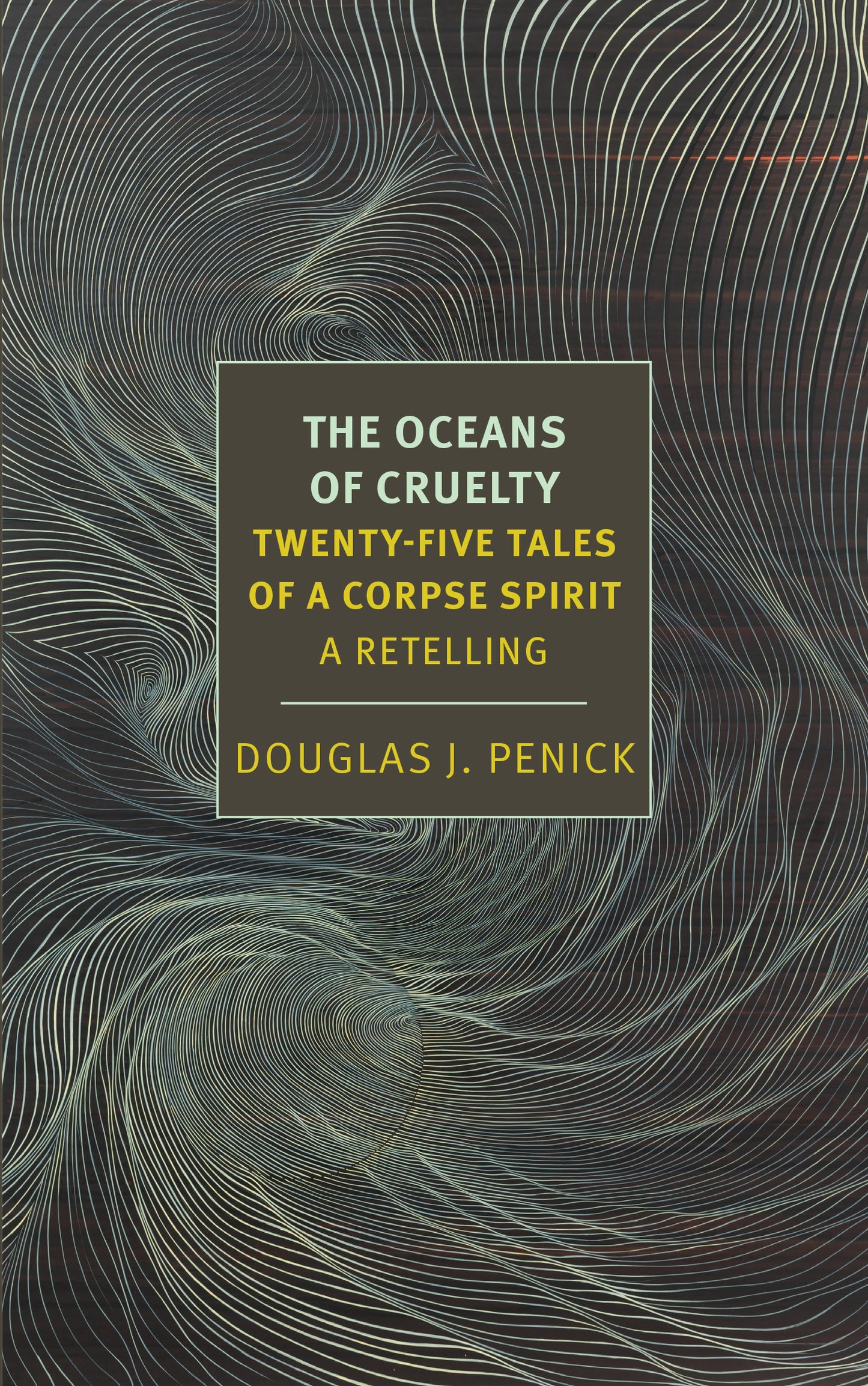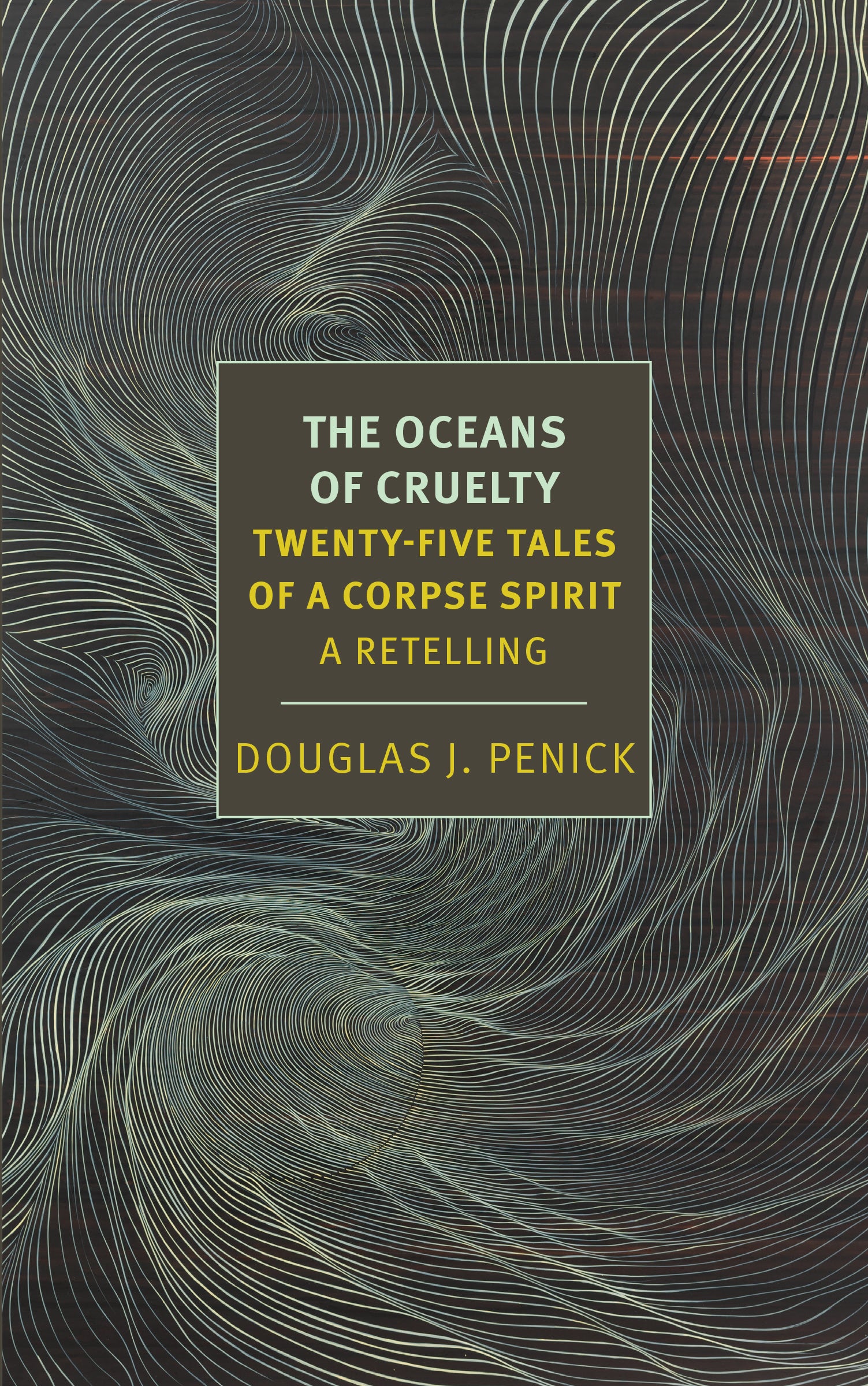It's believed to be one of the oldest story collections in existence, recorded in Hindi a thousand years ago, but with haunting origins that are even more ancient. […The book] reminds us of 'human propensities whose lasting power we may prefer to ignore.' Imagine One Thousand and One Nights, as told not by a young woman but by a vetala, a demon whose 'whisper is like the crackling sound of a burning house.'
—Alida Becker, The New York Times Book Review
I’m turning my high beams on this edition because it is transporting and a joy to read as well as a reflection on the ambiguous power of storytelling to liberate or fetter.
—Tess Lewis Art Fuse
Penick deftly handles The Oceans of Cruelty with a translator’s eye and a writer’s hand. In doing, so he succeeds in conveying the multiplicities of tone: an earthy, at times brutal matter-of-factness, an elegant sensuality which understands the entwining of violence and the body, and touches of humour.
— Tomoé Hill, Asymptote Journal
The Oceans of Cruelty is a recursive spiral weaving tales from tales, combining ancient strands of horror and beauty, brutality and mercy, duty and desire. Penick's fleet and lyrical retelling draws us back irresistibly into the shimmering abyss of our collective pre-history.
—Daniil Leiderman, Faculty of Game Design and Art History, Texas A&M
Penick offers an elegant retelling of the Vetala Panchavimshati, or 25 tales of betrayal, an eerie 11th-century Sanskrit collection … The highlight is the memorable corpse-spirit, which materializes at will like a nightmare to bedevil the king. This is worth seeking out.
—Publishers Weekly
In these twenty-five magnificent tales from an almost unremembered time, our normal human passions appear magnified before us in splendid horror. Each is a tangly vine ensnaring and twisting the lives of ordinary people, warriors, yogis, princesses, and kings into shapes appalling and unforeseen. You might love it!
—Kidder Smith, Director of Asian Studies, Bowdoin College
With his mesmerizing recreation of these stories of the Vetāla, Douglas Penick takes part in one of South Asian literature’s most enduring practices: to tell stories again and again, in different languages, from differing cultural and religious perspectives. With its lyrical prose, his haunting rendition of the stories offers contemporary readers a version both personal and universal in its appeal.
—Phyllis Granoff, Professor Emerita, Indian Studies, Yale University
Douglas Penick's retelling of this ancient story cycle is brilliant, and irresistible. We are given the mythic backstory of the whole, and it breathes new depth into the tale of King and Corpse. The book's end provides fresh insight into the meaning of the whole. The writing is breathtaking. Words leap off the page rendering the written world as alive as a story told. Profound meanings surface with wild humor and emotion. Beware! You will find yourself in direct confrontation with your own mind as your heart breaks open.
—Laura Simms, author of Our Secret Territory: The Secret of Storytelling
In Penick’s rendering, the vetala is at once without substance and substantial… So, too, are the stories the corpse spirit tells the king. These ancient fables skim the surface of characters and places, blurring into one another as they accumulate, a repetition of lustful monarchs, forlorn princesses, handsome Brahmins, ambitious merchants and all-powerful deities who appear when summoned by the ultimate sacrifices.
— Kanishk Tharoor The Washington Post
The Oceans of Cruelty makes the case that stories do not just distil life, but actually enable us to live—especially, beyond the physical and temporal limitations of biological life.
— Oscar Mardell, The Exacting Clam
Penick… bestows the proper opulence these stories demand; glistening like rubies when delving into the details of vast fortunes or ancient cities, but also like viscera when the tales take a turn for the tragic or macabre.
— Adam Camiolo, The Heavy Feather Review






